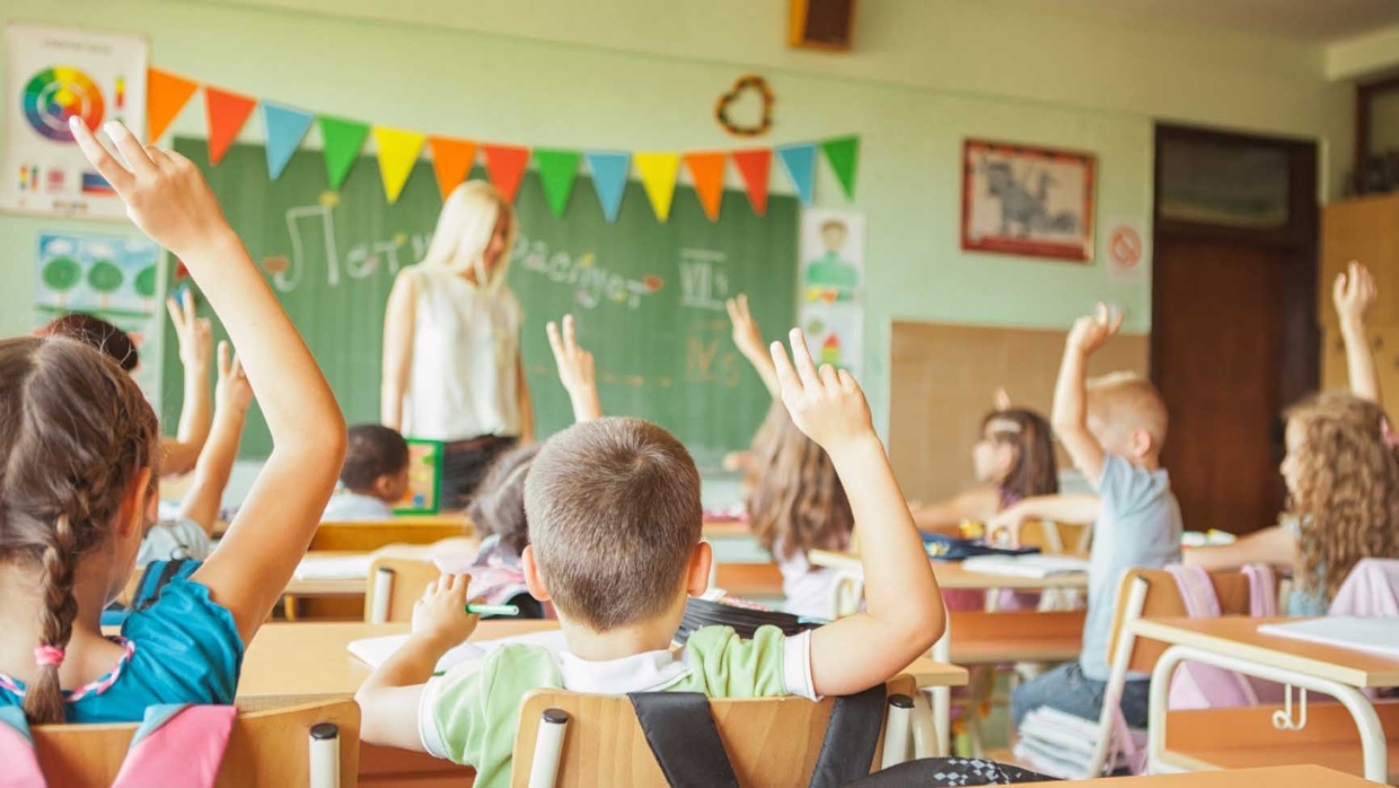Checking Out the Different Teaching Strategies in Key Scientific Research Education And Learning Today
The landscape of key scientific research education and learning is progressing, with different teaching approaches gaining prestige in modern classrooms. Inquiry-based knowing, hands-on experiments, and the integration of technology are redefining exactly how teachers involve young minds. In addition, collective approaches and set apart direction are being utilized to accommodate the diverse requirements of students, enhancing both involvement and understanding. As we analyze these methods, inquiries develop concerning their performance and the ramifications for future academic techniques. What might these changes in method mean for the next generation of learners?
Inquiry-Based Learning
Inquiry-Based Understanding (IBL) is an instructional strategy that encourages trainees to discover clinical ideas through doubting, examination, and hands-on testing. This technique stresses the role of students as energetic participants in their knowing, advertising important reasoning and problem-solving skills. By engaging with real-world inquiries, students end up being determined and curious, which improves their understanding of scientific concepts.
In IBL, educators act as facilitators, guiding trainees as they browse their inquiries instead than delivering details straight. This student-centered strategy permits differentiation, fitting various discovering styles and rates. Pupils develop skills in formulating theories, developing experiments, and analyzing information, which are vital for clinical literacy.
Additionally, IBL fosters partnership among pupils, urging them to share findings and ideas. This collective inquiry advertises social abilities and a sense of community within the classroom. In addition, the procedure of query motivates durability, as pupils discover to welcome failing as a stepping stone toward understanding.
Hands-On Experiments
Hands-on experiments are a crucial component of reliable scientific research education, enhancing the principles of inquiry-based learning. These experiments permit students to involve straight with scientific principles, cultivating a deeper understanding with experiential knowing. By adjusting materials and observing results, young students can realize abstract theories in substantial ways.
Such tasks promote essential thinking and analytic skills, as trainees assume results, conduct experiments, and assess outcomes. This process motivates them to ask questions, fine-tune their understanding, and create a scientific frame of mind. In addition, hands-on experiments can be tailored to varied learning styles, ensuring that all trainees have the possibility to engage meaningfully with the material.
Furthermore, hands-on experiments usually motivate collaboration among peers, advertising teamwork and communication abilities. Operating in groups allows trainees to share concepts, go over searchings for, and learn from each other, which boosts their overall academic experience.
Integrating hands-on experiments right into the main science educational program not only improves the discovering atmosphere but additionally grows a long-lasting interest in science. By proactively participating in their education, students are more likely to establish an interest for scientific questions that prolongs beyond the classroom.

Technology Combination
Integrating technology right into key scientific research education and learning has become increasingly necessary in cultivating pupil engagement and enhancing discovering results. Making use of digital devices, such as interactive simulations, virtual laboratories, and academic software application, offers students with possibilities to discover scientific ideas in cutting-edge ways. These resources facilitate a deeper understanding of complicated subjects by permitting learners to visualize and adjust variables that would be impractical in a typical class setting.
Moreover, modern technology combination encourages personalized finding out experiences. Trainees can advance at their very own speed, reviewing tough concepts with multimedia resources, which provide to various understanding designs. This versatility not only supports individual growth but additionally grows a sense of autonomy in students.
Additionally, modern technology offers as a bridge to real-world scientific research, attaching pupils with existing study and expert payments. Access to my company online databases and clinical journals widens students' perspectives on scientific query and cultivates crucial assuming abilities.
Collaborative Learning
Collective discovering plays an important function in primary science education by cultivating synergy and communication abilities amongst trainees. This approach motivates students to work with each other, share understanding, and involve in problem-solving, which improves their understanding of clinical concepts. By joining group activities, pupils learn to verbalize their concepts, pay attention to diverse point of views, and bargain services, every one of which are necessary abilities in both real-world and academic contexts.

Study shows that collective discovering can cause increased motivation and interaction in science topics, as pupils discover pleasure in common experiences (primary science tuition Singapore). Additionally, this approach prepares pupils for future collaborative ventures, equipping them with the abilities needed for efficient team effort in greater education and professional environments. Eventually, accepting joint knowing in key science education can substantially enrich the understanding experience and advertise a much deeper understanding of clinical questions
Distinguished Instruction

Distinguished official statement guideline can manifest in numerous means, such as differing the material, processes, or items of understanding. Instructors may use tiered projects that offer varying levels of complexity, permitting trainees to function at their corresponding preparedness levels. Additionally, versatile organizing methods can assist in cooperation amongst pupils with various capacities, fostering peer learning.
Assessment plays a crucial role in this method, as it notifies instruction and helps teachers understand each trainee's distinct requirements. Formative assessments, such as observations and quizzes, can direct teachers in readjusting their methods to boost learning results. primary science tuition Singapore. Inevitably, by applying distinguished guideline in main scientific research education, teachers can cultivate a more effective and equitable knowing environment, encouraging all trainees to reach their complete possibility in comprehending scientific phenomena
Final Thought
In summary, the diverse mentor methods in main scientific research education and learning, including inquiry-based understanding, hands-on experiments, technology integration, collective knowing, and separated instruction, helpful resources jointly add to a much more efficient discovering atmosphere. These techniques promote critical reasoning, analytic abilities, and a deeper comprehension of clinical ideas. By carrying out these approaches, teachers can produce interesting and supportive classrooms that attend to the different requirements of trainees, inevitably cultivating a lifelong passion in scientific research and enhancing scholastic achievement.
Inquiry-Based Discovering (IBL) is an instructional technique that urges students to explore clinical concepts via doubting, investigation, and hands-on testing.Joint knowing plays an essential function in primary scientific research education by promoting team effort and interaction abilities amongst students.Study suggests that collective knowing can lead to increased inspiration and interaction in scientific research subjects, as trainees find enjoyment in common experiences.In cultivating an inclusive knowing atmosphere, differentiated guideline emerges as a crucial strategy to suit the diverse needs and capacities of pupils in primary science education. Inevitably, by applying separated instruction in key scientific research education and learning, educators can grow a much more effective and equitable learning atmosphere, equipping all students to reach their full possibility in recognizing clinical sensations.
Comments on “Boost Your Child’s Confidence with Primary Science Tuition Singapore”